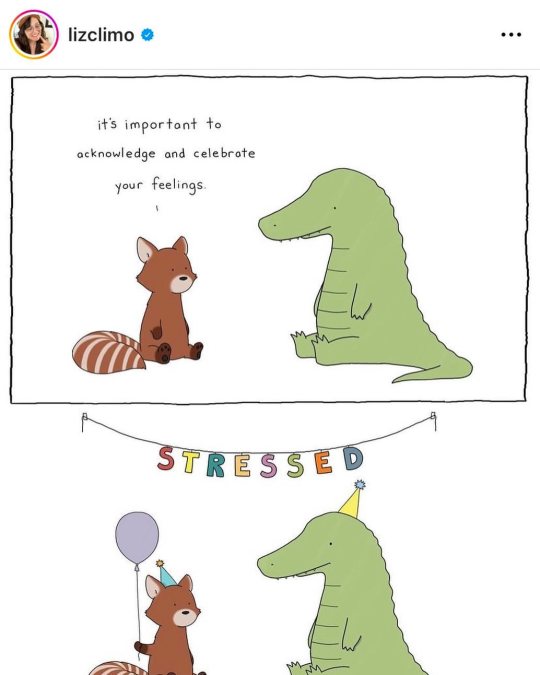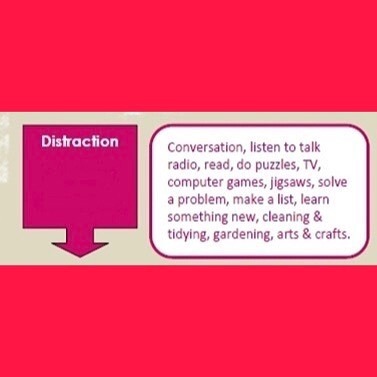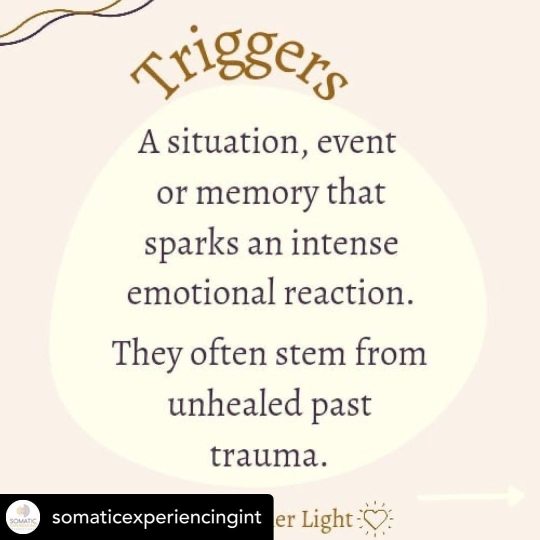#EmotionRegulation
Text
The world does not have to change because you feel a certain way...learn to check yourself
Explore the vital distinction between #feelings and facts. Learn to #process emotions rationally to avoid #impulsive reactions and safeguard your #relationships and #well-being
Navigating the Complex World of Feelings: A Therapist’s Perspective
It’s been a week since my last post, a lapse I attribute to the busyness of life and its inevitable distractions. As a licensed therapist, I too experience moments of deviation from my goals – a reminder that behavior change often follows a ‘two steps forward, one step back’ pattern. Getting back on track is part of the journey,…

View On WordPress
#CopingStrategies#EmotionalHealth#EmotionalIntelligence#EmotionRegulation#FeelingsVsFacts#HealthyMindset#InnerPeace#MentalHealthAwareness#MentalHealthMatters#MentalWellness#MindBodySoul#Mindfulness#Psychology#PsychologyFacts#RationalThinking#SelfAwareness#SelfCare#TherapyTalks#ThoughtfulLiving#WellnessJourney
0 notes
Text
instagram
Emotions and the body are intimately intertwined. The way we feel emotionally can manifest physically, impacting everything from heart rate and digestion to muscle tension and immune response. Recognizing this intricate link is a pivotal step in your healing journey.
HOW TO REGULATE YOUR NERVOUS SYSTEM
#mindbodyconnection#mindbodysoul#emotionalhealth#emotionregulation#nervoussystemregulation#nervoussystemhealth#nervoussystem#centralnervoussystem#vagusnerve#mentalhealth#wellness#wellbeing#traumarecovery#traumahealing#mind body connection#mind body soul#emotional health#emotional wellness#nervous system regulation#nervous system#vagus nerve#mental health#Instagram
0 notes
Photo

Pensamos que ao reconhecer os sentimentos da criança. De os validar. De os abraçar. Estaremos a contribuir para criar “totós” “flores de estufa” que não vão saber lidar com este mundo que é cruel e por aí fora. Diria que é exatamente ao contrário. Ao não reconhecer os sentimentos da criança. Ao tentar que depressa os esqueça. Os engula. Se distraia. Se foque no lado bom. Ou. Na vida é mesmo assim. Agora toca a por um sorriso. Já passou. Não penses mais nisso. Estamos a preparar terreno para que a criança se afaste (cada vez mais) das suas emoções. Estamos a ensinar a criança formas de evitar lidar com o sofrimento. Sofrimento esse. Que sim. É parte da vida. Interior. E. Do mundo. A compaixão. Ao contrário do que se pensa. Não tem nada a ver com sobreproteção. Tem a ver. Entre tantas outras coisas. Com a coragem e a sabedoria de pegar a dor ao colo. A imagem é da @lizclimo que tem desenhos com mensagens maravilhosas #emotions #emotionregulation #compassion #mymommyisapsycho https://www.instagram.com/p/CpphYY6MMOc/?igshid=NGJjMDIxMWI=
0 notes
Text
Mindfulness in education
Introduction
Mindfulness has taken the world by storm, and its popularity has spread to many different areas of life, including education. Mindfulness in education is the practice of teaching students to become aware of their thoughts, emotions, and environment, and to respond to them with kindness and compassion. It is a valuable tool that can help students develop the skills needed to cope with stress and make better decisions. In this blog post, we will examine the benefits of mindfulness in education, the science behind it, and how it can be incorporated into the classroom.
The Benefits of Mindfulness in Education
Mindfulness has been proven to benefit both teachers and students in a variety of ways. For students, practicing mindfulness has been linked to improved academic performance, better focus, and a greater ability to regulate emotions. It can also help students to develop better relationships with peers and teachers, and increase their self-awareness and self-esteem.
Teachers who practice mindfulness can also benefit from improved relationships with students, greater understanding of student behaviour, and improved classroom management. Additionally, mindfulness can help teachers to reduce stress and burnout, and increase their own wellbeing.
The Science Behind Mindfulness
Mindfulness is based on the principles of cognitive science, neuroscience, and psychology. Neuroscientists have found that practicing mindfulness can lead to changes in the brain, including an increase in grey matter in regions associated with memory, learning, and emotion regulation. Additionally, mindfulness has been found to reduce stress, anxiety, and depression, while increasing focus and attention.
It is also important to note that mindfulness is not a one-size-fits-all solution. Rather, it is a set of skills that must be learned, practiced, and adapted to the individual.
Incorporating Mindfulness into the Classroom
Incorporating mindfulness into the classroom can be a challenge. The best way to do this is to start small and focus on teaching the basics. Begin by introducing mindfulness as a tool to help students cope with stress and build self-awareness.
From there, you can start teaching mindfulness through activities such as guided meditations, breathing exercises, and mindful movement. You can also use games and activities to help students practice being mindful.
Finally, it is important to provide a safe and supportive environment for students to practice mindfulness. This means creating a space free from judgment and criticism, and encouraging students to share their experiences and feelings.
Conclusion
Mindfulness in education is a valuable tool that can benefit both teachers and students. It has been proven to improve academic performance, focus, and emotional regulation, while reducing stress and burnout. Additionally, it can help students to develop better relationships with peers and teachers, and increase their self-awareness and self-esteem.
Incorporating mindfulness into the classroom is not always easy, but it is possible. By taking it slow and focusing on the basics, teachers can create an environment in which students can learn and practice the skills of mindfulness.
Ultimately, mindfulness can be an invaluable tool for improving the wellbeing of both students and teachers, and creating an environment of understanding and compassion.
#Mindfulness#Education#CognitiveScience#Neuroscience#Psychology#GreyMatter#Memory#Learning#EmotionRegulation#Stress#Anxiety#Depression#Focus#Attention#SelfAwareness#SelfEsteem#Relationships#ClassroomManagement#Burnout#GuidedMeditations#BreathingExercises#MindfulMovement#Games#Activities#Judgement#Criticism#Compassion
0 notes
Text
Personality and Cognitive Quotients: Insights from Psychology
Introduction
The relationship between personality traits and mental abilities has been a central theme in psychology, offering understanding into how individual differences affect behavior and performance. Traditionally, intelligence was narrowly defined as the ability to reason logically, plan systematically, and solve problems quickly – typically measured by IQ tests. Multiple Intelligences Theory by Howard Gardner enlarged this notion by suggesting that there are many types of intelligences such as linguistic, logical-mathematical, spatial, musical, bodily-kinesthetic, interpersonal intrapersonal and naturalistic intelligences among others. This broader perspective points out that intellect is not one thing but a multitude of skills indicative of diverse ways people interact with their environment; thus far research has continued to dwell on these issues as well as relationships between Big Five Personality Traits namely Openness Conscientiousness Extraversion Agreeableness Neuroticism with different dimensions of intelligence also social functioning.
Openness to Experience and Curiosity Quotients
Closely related to openness is curiosity which can be measured using Curiosity Quotient (CQ) that describes an individual’s thirst for information or desire for novelty. According to von Stumm et al., (2011), intellectual curiosity – a major component of Openness has been found to significantly contribute towards academic achievement even beyond traditional cognitive abilities. Such curiosity encourages learners’ deep involvement with content leading higher level cognitive investments while at the same time enhancing creative problem solving skills. In other words it implies those who are open minded not only accept new ideas but also tend explore them more thereby widening their knowledge base and improving various aspects of thinking.This finding suggests therefore that fostering curiosity should be seen as strategy for promoting intellectual growth hence educational institutions should create environments which nurture investigative learning through asking questions.
Agreeableness Social Intelligence (EQ)
Agreeableness is characterized by empathy cooperation trust etc., all these traits have strong relationships with Emotional Intelligence (EQ). For instance Nusbaum and Zuroff (2017) conducted a meta-analysis which showed that higher levels of agreeableness were associated with greater emotional awareness as well better interpersonal skills. This implies that individuals who score highly on Agreeableness are more likely to be good at reading other people’s moods while also being skilled in dealing with them appropriately within social settings – thus this ability may help one succeed both personally professionally. Additionally having such an attribute means being able to understand others’ emotions easily hence it enhances communication abilities thereby promoting conflict resolution.
Research Associations Between Neuroticism, Stress, and Agreeableness
Neuroticism is strongly correlated with stress sensitivity where many studies have shown that people high in neuroticism tend perceive daily events or situations more stressful than those low in neurosis. Moreover, it has been observed that individuals scoring at extreme ends of this trait dimension exhibit different patterns coping style when faced by same stressors; indeed high scorers often respond through negative affectivity such anxiety fear sadness etc., whereas their counterparts express positive feelings like joy excitement happiness. Furthermore apart from heightened reactivity towards negative aspects life due inability regulate emotions properly these individuals also take longer recover from adverse experiences resulting prolonged periods characterized by increased anxiousness along with further maladaptive behaviors aimed reducing stress levels.Research has established close relationship between these two variables so much so
On the other hand, EQ usually correlates negatively with neuroticism. Emotional regulation and awareness necessary for EQ are often compromised at higher levels of Neuroticism. People with high neurotic symptoms may find it difficult to understand or manage their own feelings as well as misinterpret others’ emotional signals hence affecting their social interactions adversely.
Neuroticism and Agreeableness integrated within EQ
It should be noted that when both agreeableness and neuroticism are considered along with each other in relation to emotional intelligence (EI); there can be complex interactions between these two personality traits towards EI. For example; an individual who is highly agreeable as well as very neurotic might have empathy skills on one hand but also fear evaluations or conflicts arising from such relationships due to extreme worry about them being maintained harmoniously thus creating mixed self management abilities where this person has good interpersonal skills but lacks stress coping strategies.
Conclusion
In conclusion, while it is true that agreeableness positively correlates with Emotional Intelligence (EQ) leading better understanding of others’ emotions and more improved relationship building; generally neurosis undermines this concept by making regulation process too complicated thereby impeding ability to cope up with stress among individuals having different levels of these traits. Such understandings are important because they help people design interventions which maximize benefits derived from being highly agreeable while minimizing negative impacts associated with high levels of Neuroticism in various areas like personal growth or professional development programs.However, combination does not always equal so; therefore we should know that there is no neat equation between them but rather a significant interplay between these components which greatly shapes individual’s emotional intelligence profile.
The study into how personality affects cognitive ability measures provides us with insights about human behaviour and potentiality. Such understanding enables educators come up personalized educational plans which cater for diverse personalities alongside intellectual capabilities. By recognizing strengths inherent within each personality type employers can create an environment conducive for optimal job performance while fostering good relations among employees. Ultimately this knowledge equips people to devise more inclusive strategies aimed at personal growth both at social dimensions such as friendship building or self awareness levels.Thus it can be said that the interrelationship between personality and intelligence is critical in our quest for success.
References:
Brackett, M. A., & Mayer, J. D. (2003). Convergent, discriminant, and incremental validity of competing measures of emotional intelligence. Personality and Social Psychology Bulletin, 29(9), 1147-1158. https://doi.org/10.1177/0146167203254596
Fernández-Berrocal, P., & Extremera, N. (2006). Emotional intelligence: A theoretical and empirical review of its first 15 years of history. Psicothema, 18, 7-12. http://www.psicothema.com/pdf/3271.pdf
Lahey, B.B. (2009). Public health significance of neuroticism.American Psychologist,64(4),241-242.doi:10.1037/a0015309
Lopes,P.N., Salovey,P.,Côté,S.,& Beers,M.(2005).Emotion regulation abilities and the quality of social interaction .Emotion ,5(1),113-118.doi:10.1037/1528-3542.5.1.113
Mikolajczak,M., Luminet,O., Leroy,C., & Roy,E.(2007).Psychometric properties of the Trait Emotional Intelligence Questionnaire:Factor structure,reliability construct,and incremental validity in a French-speaking population.Journal of Personality Assessment ,88(3),338-353.doi:10..1080/00223890701333431
Nusbaum,E.C.& Zuroff,D.C.(2017)Relations of the five-factor model of personality with perceived and actual emotional intelligence: A meta-analysis.Personality and Individual Differences,106,223-229.doi:10.1016/j.paid.2016.10.044
Suls,J.,& Martin,R.(2005).The daily life of the garden-variety neurotic: Reactivity, stressor exposure,mood spillover,and maladaptive coping.Journal of Personality ,73(6),1485-1510.doi:10.1111/j.1467-6494.2005.00356.x
von Stumm, S., Hell, B., & Chamorro-Premuzic, T. (2011). The hungry mind:intellectual curiosity is the third pillar of academic performance.Perspectives on Psychological Science , 6(6),574-588.doi:10.1177/1745691611421204

#PsychCommunity#PsychoEducation#MentalHealthAwareness#PsychologyResearch#EvidenceBased#StressManagement#CopingStrategies#MentalWellness#EQ`#`EmotionRegulation`#SocialSkills`#self awareness#Extraversion#Openness#Neuroticism#Agreeableness#Conscientiousness#big 5#PersonalityTraits
0 notes
Text
How To Manage Anger Effectively: Practical Tips For Everyday Life | Authentic Soul Quest
How To Manage Anger Effectively: Practical Tips For Everyday Life | Authentic Soul Quest
https://www.youtube.com/watch?v=yQ732JEDsqQ
Discover easy and effective ways to manage anger in our latest video. Learn how to stay calm and handle emotions in everyday situations.
This guide offers simple tips for turning anger into a positive force. Join us for practical advice on emotional wellness.
Embark on a transformative journey with 'Authentic Soul Quest' as we explore the world of anger management in our latest video, 'Transform Your Anger: Proven Techniques for Positive Outcomes.' Discover why anger is a natural yet complex emotion and learn effective strategies to express it healthily.
From understanding the brain's role in anger to practical tips for calming down in stressful situations, this video offers a comprehensive guide to turning your anger into a powerful ally for personal growth.
Join us in mastering the art of managing anger and embracing a healthier, more balanced approach to emotional expression. Remember to like, share, and subscribe for more insightful personal growth and wellness content.
Title: How To Manage Anger Effectively: Practical Tips For Everyday Life | Authentic Soul Quest
This video explores information on. How To Manage Anger Effectively: Practical Tips For Everyday Life. But also covers the following topics:
How To Control Anger
Anger Management Tips
Calming Techniques For Anger
✅ Subscribe to The Channel Authentic Soul Quest for a vibrant exploration of the eight essential components of a balanced life, guiding you on a personalized journey of wellness: https://www.youtube.com/@AuthenticSoulQuest
✅ Stay Connected With Us.
👉 TikTok: https://ift.tt/N6Vk7qe
✅ For Business Inquiries: [email protected]
=============================
✅ Other Videos You Might Be Interested In Watching:
👉 Channel Trailer
https://www.youtube.com/watch?v=MtuhjI-KbR4
👉 The Essence of Emotions: A Journey Inside Our Feelings
https://www.youtube.com/watch?v=R8I9IdCyfdI
👉 The Secret to Unlocking Your Best Self: The Power of Sleep
https://www.youtube.com/watch?v=FcR-iXJCI58&t=13s
👉 1K Milestone Achieved! 🌟 A Heartfelt Thank You From Authentic Soul Quest
https://www.youtube.com/watch?v=c4VGJ2TP3w4
👉 Achieving Inner Peace: The Art of Relaxation
https://www.youtube.com/watch?v=oAkkwDzs4Tw
👉 Entertain to Gain: Discovering Personalised Joy
https://www.youtube.com/watch?v=CsQumsMt5m4
=============================
✅ About Authentic Soul Quest.
Welcome to our vibrant, one-stop channel for complete well-being! This is a space where we delve into the eight essential components of a fulfilling, balanced life, providing a fun and engaging guide to your wellness journey.
For Collaboration and Business inquiries, please use the contact information below:
📩 Email: [email protected]
🔔 Subscribe to The Channel Authentic Soul Quest for a vibrant exploration of the eight essential components of a balanced life, guiding you on a personalized journey of wellness: https://www.youtube.com/@AuthenticSoulQuest
=================================
#angermanagement #emotionalwellness #stressrelief #mindfulness #personalgrowth #emotionregulation
Disclaimer: We do not accept any liability for any loss or damage incurred by you acting or not acting as a result of listening to any of our publications. For all videos on my channel: This information is for general & educational purposes only. Always consult an attorney, CPA, or financial professional for advice based on your situation.
Copyright Disclaimer: Under Section 107 of the Copyright Act 1976, allowance is made for "fair use" for purposes such as criticism, comment, news reporting, teaching, scholarship, and research. Fair use is a use permitted by copyright statute that might otherwise be infringing. Non-profit, educational, or personal use tips the balance in favor of fair use
© Authentic Soul Quest.
via Authentic Soul Quest https://www.youtube.com/channel/UCYmeQYPvYcHZ56aliEXqdmA
December 06, 2023 at 11:01PM
#wellbeing#happiness#health#life#balance#mindfulness#sleeppower#selfdiscovery#healthandwellness#unlockpotential#qualitysleep#brainhealth#innerpeace
0 notes
Text
Tweeted
Participants needed for online survey! Topic: "A Survey on loneliness, emotion regulation and social connectedness" https://t.co/WoJyIHwHrD via @SurveyCircle #AmityUni #loneliness #EmotionRegulation #SocialConnectedness #emotions #thesis https://t.co/NkhVn8r8IB
— Daily Research @SurveyCircle (@daily_research) May 17, 2023
0 notes
Text
Improving Psychosocial Function in Testicular Cancer Survivors
Young adult testicular cancer survivors may face psychosocial challenges. New behavioral therapy GET improves self-regulation and reduces symptoms. #testicularcancer #cancersurvivors #psychosocialfunction #behavioraltherapy #emotionregulation #depression
Testicular cancer is a prevalent non-skin cancer among males in late adolescence and early adulthood, and young adult survivors are known to face unique challenges later on in their adult lives.
These challenges include both psychological and physical impacts, such as body image disruption, social relationship difficulty, fertility and sexual distress, anxiety, depression, and fear of cancer…

View On WordPress
#anxiety#behavioral therapy#cancer survivors#depression#emotion regulation#goal navigation#psychosocial function#self-regulation.#Testicular cancer
0 notes
Photo

Follow @pokingholes_cptsdwarrior for MORE.
Photo and Caption (below⏬) Reposted from @drannakress on IG.
Recognizing when we’re triggered and being self-compassionate can help us regulate our emotions enough to see if what we perceive to be a threat is actually a threat. Sometimes it’s a current threat that requires a healthy response (such as boundaries) and other times it’s a misunderstanding that feels way too similar to a previous painful experience.
Either way, self-compassion can help support us while we sort it out. ❤️
.
.
.
#emotionregulation #dbtskills #dbttherapy #dbt #ptsdsupport #traumarecovery #traumahealing #healingtrauma #emotionalhealth #regulatingemotions #healthyboundaries #selfcompassion #selfcompassionjourney #cyclebreakers #innerchildhealing
https://www.instagram.com/p/CPpNr4dD3He/?utm_medium=tumblr
#cptsd#emotionalflashback#triggered#selfcompassion#youaresafe#developmentaltrauma#emotionregulation#dbtskills#dbttherapy#dbt#ptsdsupport#traumarecovery#traumahealing#healingtrauma#emotionalhealth#regulatingemotions#healthyboundaries#selfcompassionjourney#cyclebreakers#innerchildhealing
13 notes
·
View notes
Video
This is for anyone who was taught that anger is bad. Anyone who was taught that it’s not acceptable to express their anger. Let me know your thoughts on this below. . . . #anger #angry #rage #anxiety #mentalhealth #bpd #psychologist #mentalhealthawareness #emotionregulation #distresstolerance #psychologistsofinstagram #angermanagement #angerskills #angerissues #angerisagift #angerisanenergy https://www.instagram.com/p/B-0Ma6uDmOf/?igshid=1nmt17pufwhvg
#anger#angry#rage#anxiety#mentalhealth#bpd#psychologist#mentalhealthawareness#emotionregulation#distresstolerance#psychologistsofinstagram#angermanagement#angerskills#angerissues#angerisagift#angerisanenergy
1 note
·
View note
Photo

When you're angry, you have a snowball. Irritations are snowflakes. Sometimes it's a light flurry, sometimes it's a storm. Try to express and face your snowballs before they turn into an avalanche. #weeklygoal #goals #progress #emotionregulation #kawaii #pink #mentalhealth #snowballs #snow #mentalillness #selfcare #yourfeelingsarevalid #angerisahumanemotion https://www.instagram.com/p/B62JyyppODt/?igshid=qn9xzk2s08vx
#weeklygoal#goals#progress#emotionregulation#kawaii#pink#mentalhealth#snowballs#snow#mentalillness#selfcare#yourfeelingsarevalid#angerisahumanemotion
1 note
·
View note
Photo

#emotionregulation #dbt #dbtskills #dbtpractice https://www.instagram.com/p/Bw5dT7qACcd/?utm_source=ig_tumblr_share&igshid=j606xb19stbj
1 note
·
View note
Photo

Já falei algumas vezes aqui da raiva. Só mais uma dica. Se a tua cria sente raiva perante alguma injustiça. Não falou na situação em si. Mas. Chegou a casa. E. Falou contigo de como isso a deixou irritada. De como foi injusto. Deixa-a falar. Expressar-se. Mesmo que o tom seja mais alterado. Mais alto. Escuta-a. Identifica a emoção. “Estou a ver que ficaste mesmo com raiva de tudo isso” Valida o que ela sentiu. “Percebo que te tenhas sentido assim” “Percebo que (tenha sido) esteja a ser difícil para ti” Mostra-lhe que não é a única a sentir isso. “Penso que qualquer pessoa no teu lugar se iria sentir assim.” “Um dia. Numa situação xxxxx eu também fiquei assim” Valida a sua ação. “Fizeste bem em não ter falado na altura. E quero agradecer-te por estares a confiar em mim para contar esse episódio. Não nos faz bem quando guardamos as coisas difíceis dentro de nós” Fomenta que crie alternativas de resposta à raiva. No agora. E/Ou no futuro. “O que é que estás a pensar fazer agora?” “Quando voltar a acontecer o que pensas que será melhor fazer?” Se quiseres também podes dar tu alternativas. Numa cria que costuma engolir a raiva. Se não estimulamos o diálogo em casa. Mais essa raiva fica em esforço dentro dela. E. Mais tarde ou mais cedo. Explode. Para dentro ou para fora. #anger #raiva #emotionregulation #mymommyisapsycho https://www.instagram.com/p/CozeqdWMNmC/?igshid=NGJjMDIxMWI=
0 notes
Photo

🌺 I WILL BE ONE OF THE KEYNOTE SPEAKERS AT THIS FABULOUS EVENT!!! 🌺 . SGE LLC Presents a 2 Day Event! Whether a Wedding, Retirement, Graduation, Engagement or just because! This Event Will Take A Lot Off Your List! Book, Buy, Order! Then Sunday Enjoy A Fabulous Fashion Show with Wine, Cupcakes, and Great Music! Tickets Available $15 call 216.400.0218 . . #weddingseason #weddings #party #planner #eventplanner #events #clevelandevents #entrepreneur #caterers #decor #decorationideas #wellness #stressrelief #mentalhealth #emotions #emotionregulation #thisiscle #getbetter #feelbetter https://www.instagram.com/hill_robyn/p/BwE6BRKBv4s/?utm_source=ig_tumblr_share&igshid=7zfoznaokp35
#weddingseason#weddings#party#planner#eventplanner#events#clevelandevents#entrepreneur#caterers#decor#decorationideas#wellness#stressrelief#mentalhealth#emotions#emotionregulation#thisiscle#getbetter#feelbetter
1 note
·
View note
Photo

Posted @withregram • @somaticexperiencingint Repost from @luminousinnerlight • A trigger is an event or memory that sparks an intense emotional reaction. Triggers often stem from unhealed past trauma. ◇ Our body stores unprocessed emotions or unhealed trauma from the past! This is why whenever we come across situations similar in some way to the traumatic experience from the past, our brain perceives it as danger and our nervous system goes into fight, flight or freeze mode. Our body acts as though we are experiencing the trauma all over again! ◇ Our nervous system would trigger a stress response, even if in reality the new experience is not necessarily a threat like in the past! Our nervous system is doing this to keep us safe and protect us from possibly getting hurt again. ◇ When triggered, one enters an endless (thoughts-emotions) loop.. with thoughts overwhelming us and unpleasant emotions following the thoughts. ◇ This is how a seemingly ordinary situation triggers a fight, flight or freeze response in some people and could manifest as rage, avoidance, loneliness, sadness, anxiety, panic, etc The good news is.. it's possible to heal from trauma* and feel safe! When we understand our triggers, do the inner work to heal and release unprocessed emotions from the mind-body, the triggers will eventually not seem significant. Offer compassion to yourself and know that your trauma is not your fault. *Please seek help if triggers bother you on a regular basis. 🌟 Follow @luminousinnerlight for more posts on healing. SAVE this post for later! 🌟 . . . #luminousinnerlight #triggers #selfcompassion #nervoussystemregulation #traumaawareness #somatichealing #mindbodyconnection #somatictherapy #somaticexperiencing #embodimentpractice #emotionregulation #fightflightfreeze #fightorflight #traumahealing #stressresponse #angermanagement #knowyourtriggers #polyvagaltheory - #SomaticExperiencing #mindfulness #somaticexperiencinginternational #neurobiology #ptsd #cptsd #somatics #healthcare #psychology #traumahealing #trauma https://www.instagram.com/p/CVIOM9eFIav/?utm_medium=tumblr
#luminousinnerlight#triggers#selfcompassion#nervoussystemregulation#traumaawareness#somatichealing#mindbodyconnection#somatictherapy#somaticexperiencing#embodimentpractice#emotionregulation#fightflightfreeze#fightorflight#traumahealing#stressresponse#angermanagement#knowyourtriggers#polyvagaltheory#mindfulness#somaticexperiencinginternational#neurobiology#ptsd#cptsd#somatics#healthcare#psychology#trauma
0 notes
Text
Tweeted
Respondenten gezocht voor onderzoek! Onderwerp: "(Co-)parenting quality in non-traditional families" https://t.co/pMOausDR0B via @SurveyCircle #coparenting #NontraditionalFamilies #EmotionRegulation #parenting #enquête #survey #surveycircle https://t.co/JPeByh9t4T
— Daily Research @SurveyCircle (@daily_research) Apr 17, 2023
0 notes